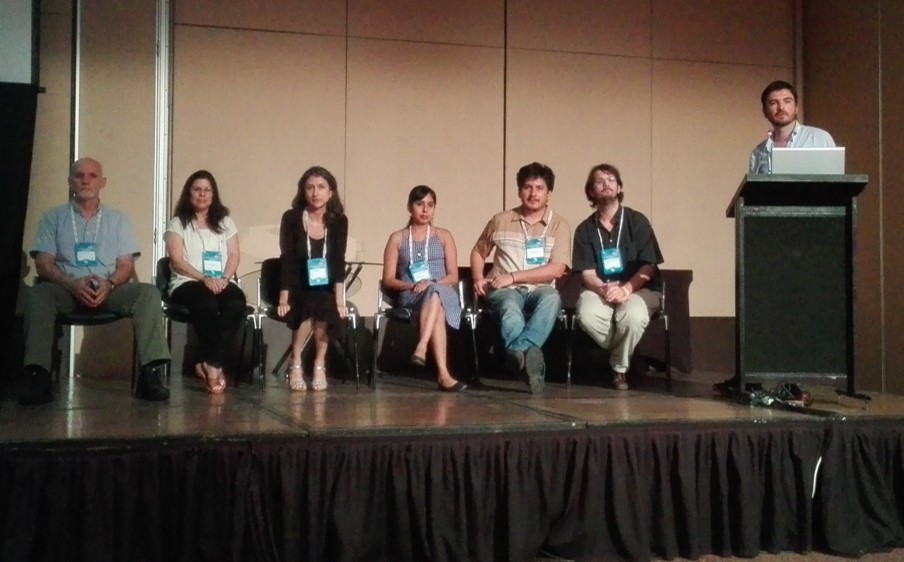Story from Irina Montenegro, WWF Chile
In July 2017, Cartagena, Colombia, hosted the 28th International Congress for Conservation Biology (ICCB). The program included a Symposium on Adaptive management in Latin American Protected Areas: challenges and opportunities. Within the program, Maximiliano Sepulveda (National Forest Service) and Irina Montenegro (WWF Chile) shared experiences on “Conservation Planning for the Protected Area System and Priority Ecoregions in Chile.” The key topic was how standardized methodologies provide a common language to facilitate the coordination among different types of organizations and people in large conservation landscapes. For example, in 2015, the Open Standards were used as the central axis for evaluating and updating the planning methodology of the National System of Protected Areas of Chile. And since 2011, WWF Chile has used Project and Programme Management Standards (PPMS), an institutional version of the Open Standards, to facilitate planning and adaptive management of its ecoregional programs and to create a formal agenda for the Valdivian Temperate Forest and priority sites within the Chiloense Marine Ecoregion.
Along with the presentation shared above, the symposium included the following talks, in which several CCNet coaches and friends of the Network (marked in italics) shared their expertise. You can read abstracts from the Congress here.
- Adaptive Management for Protected Areas Systems Effectiveness: Challenges and Learnings from Peru. Paola Mejia, Sistema Nacional de Áreas Protegidas, Cindy Vergel Rodríguez.
- Theory of Change as a Framework for Sharing Learning Between Protected Areas. Guillermo Placci, Foundations of Success, Arlyne Johnson, Foundations of Success; Nick Salafsky, Foundations of Success; Armando Valdes-Velasquez, Foundations of Success/Cayetano Heredia University
- Evidence-based Conservation Planning and the Multiple Roles of Academia. Eduardo Silva-Rodriguez, Departamento de Ecología y Biodiversidad, Universidad Andres Bello, Chile; Lyn Branch, Department of Wildlife Ecology & Conservation, University of Florida
- Conservation Planning for the Protected Area System and Priority Ecoregions in Chile. Maximiliano Sepulveda, Corporación Nacional Forestal; Irina Montenegro, WWF Chile.
- The Long and Windy Road to Adaptive Management of the Lower Rio Negro Mosaic in the Brazilian Amazon. Guillermo Estupiñán, Wildlife Conservation Society (Quinto en la fila sentada de izquierda a derecho en la foto), Brazil Program; Karl Didier, Wildlife Conservation Society; Marisete Catapan, Independent Consultant; Carlos Durigan, Wildlife Conservation Society, Brazil Program.
- Uruguay’s Protected Areas: Integrating Conservation Between Scales and Public Policies. Paola Mejia, Sistema Nacional de Áreas Protegidas; Lucía Bartesaghi, Sistema Nacional de Áreas Protegidas; Soledad Mantero, MVOTMA – División Sistema Nacional de Áreas Protegidas; Mariana Ríos, Sistema Nacional de Areas Protegidas; Alvaro Soutullo, Centro Universitario Regional Este.

CCNet coaches share expertise at ICCB symposium, 2017 in Colombia. Photo credit: WWF-Chile
